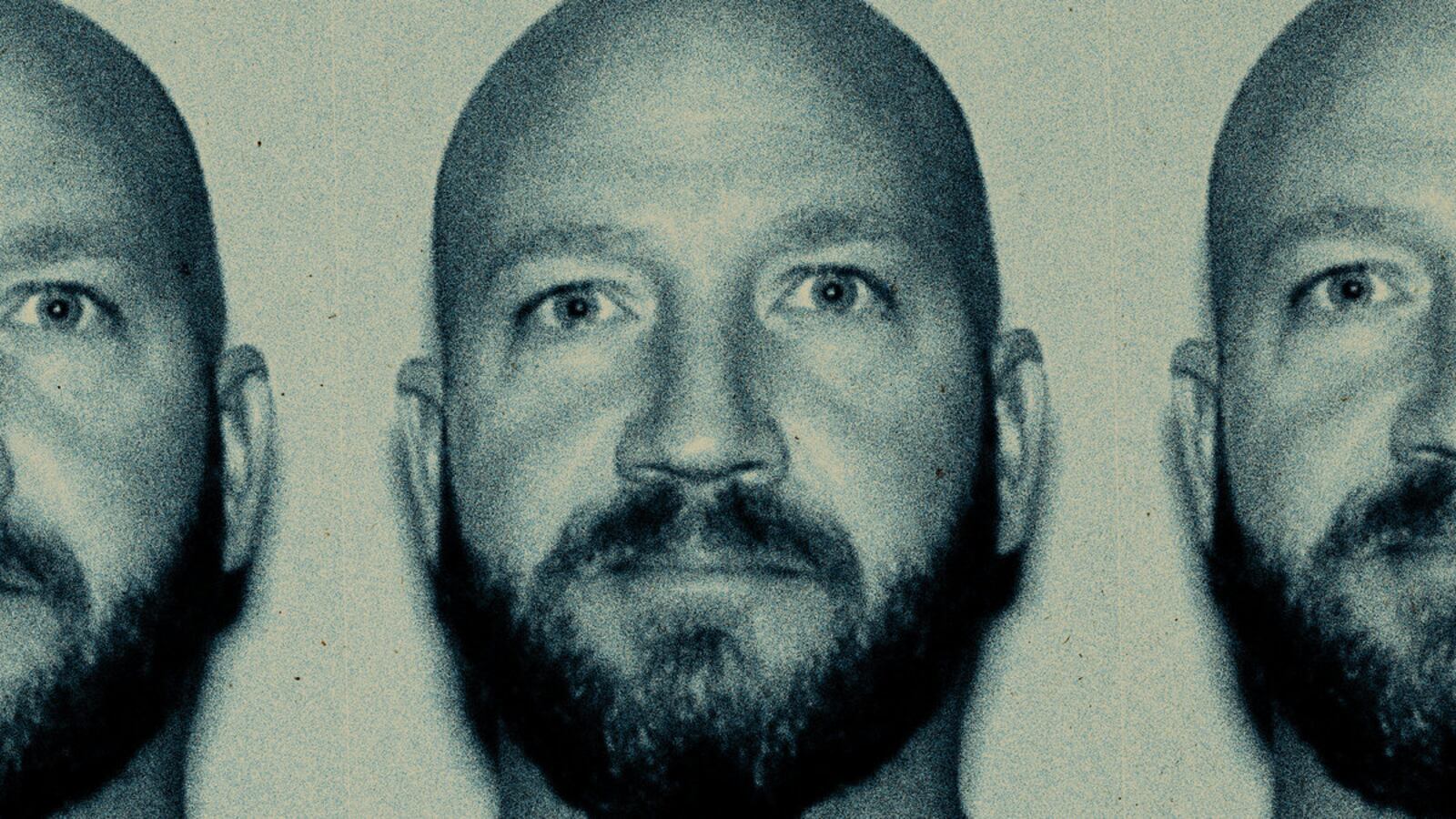Forty-year-old Ryan Whitaker should have been sharing this Thanksgiving with his two children and other loved ones. Instead, his family marked the holiday as the first since Whitaker, who had been holding his handgun as legally allowed in the open carry state of Arizona, was shot and killed by the Phoenix police on May 21 in his own doorway, on his knees, while appearing to place his gun on the ground and raise his hands as directed by the police.
After watching the bodycam footage of the incident, you might assume that Officer Jeff Cooke, who shot Whitaker twice in the back as he was on his knees raising his hands, would already have been charged with a crime. Yet to date, not only have there been zero charges, but Cooke is still working as a police officer and shockingly received a “glowing review” from his sergeant a month after the shooting, as Whitaker’s sister Katie Baeza explained to me. (She obtained Cooke’s personnel records via a Freedom of Information Act request.)
This incident came to my attention because Baeza has literally been emailing countless people in the media in the hopes there will be justice for Ryan, instead of him simply being a faceless statistic included in the 984 people shot and killed by the police across the country in 2020. Baeza noted that Whitaker had great respect for the police, even applying to be one when he was younger, adding that he had neither a criminal record, nor had he ever been arrested. But none of that mattered on May 21.
The facts surrounding the shooting are for the most part settled, confirmed by both Baeza and local media reports. The Phoenix police received two calls complaining of loud music and noises coming from Whitaker’s apartment in the Ahwatukee area, which he shared with his girlfriend Brandee Nees. The first call came a little after 10 p.m. local time from a neighbor.
When the police didn’t respond, the neighbor called again approximately 30 minutes later, pressuring the dispatcher to send the police to this upscale Phoenix suburb to stop the music. When the dispatcher inquired if he heard sounds of violence, the caller stated in an apparent effort to speed up the police response, “Oh, it could be physical… I could say ‘yeah’ if that makes anybody hurry up.”
In reality, there was no violence in the apartment, as confirmed by Whitaker’s girlfriend in a statement she made to the police minutes after the shooting, which was captured on video. Earlier in the evening, Whitaker had attended the high school graduation of his 18-year-old daughter and was in jovial spirits. At the time the police arrived, Whitaker, an avid outdoorsman who loved everything from hiking to snowboarding, and Nees were playing music and video games as they prepared for a trip to their family’s cabin the next day.
Two Phoenix patrol officers, Cooke and John Ferragamo, arrived at Whitaker’s apartment at approximately 11 p.m. From the officers’ bodycam footage, you can see them knock on the door with their weapons drawn, standing to the side of the door so that when Whitaker looked through the peep hole, he couldn’t see who was there. While the officers identified themselves as Phoenix police, Whitaker’s girlfriend said they could not hear anything but the banging on the door because of the loud music.
Whitaker, who legally owned a handgun, opened the door shirtless, with his gun in his right hand on his side. As his sister explained, the reason her brother likely brought the gun to the door was that about a week before, someone had banged loudly on the door in the middle of the night and then run away.
Then comes the five seconds that ended Whitaker’s life. From the bodycam video you can see Whitaker open the door, peering out while standing in his doorstep. At that point the officers yelled, “Hands! Hands!” Whitaker immediately and without any hesitation responded by dropping to his knees, pleading, “Whoa, whoa” to calm the situation. In that same moment, Whitaker appears to be placing his gun on the ground next to him with his right hand while raising his empty left hand. At that moment Officer Cooke, who was standing behind Whitaker, suddenly fired three shots, hitting Whitaker twice in the back.
Cooke’s partner Ferragamo, who had been standing facing Whitaker where he could clearly see Whitaker’s actions, did not fire a shot. In fact, after Cooke fired his weapon, a stunned Ferragamo exclaimed, “Oh, shit!” Common sense tells us that if Ferragamo had feared for his life, he too would have fired his weapon. Whitaker died shortly thereafter on his own doorstep.
Before the bodycam video was released, Baeza explained that Officer Cooke had claimed that her brother had opened his door and aggressively moved toward the police while brandishing a gun, causing him to fear for his partner’s safety. The bodycam video, however, appears to make clear that that’s not the case. At no time did Whitaker move aggressively to the police. He opened the door, remained on his doorstep and immediately upon recognizing it was the police, dropped to his knees, never raising his gun, only his empty left hand.
It appears that Officer Cooke, an officer for just three years at the time of the shooting, may simply have panicked when Whitaker raised his left hand. However, panicking is no defense for killing someone. In fact, in the past, Arizona police officials have voiced concerns about the challenges posed by the state allowing open or even concealed carry of weapons without the need for a permit. This should have led to even more training for police officers to calmly handle situations where a person is armed given that it’s commonplace in the state.
Yet here we are six months later, and the Whitaker family is no closer to justice. The police completed their investigation in July, turning over the file to the Maricopa County Attorney's Office that just last week issued a statement, “This case is still in the review stage and a decision has not been made.”
Although Whitaker was white, the family has been working in concert with the local Black Lives Matter chapter seeking justice in this case and others involving potential wrongdoing by the Phoenix Police Department such as the 2017 killing of Muhammad Abdul Muhaymin, Jr. Baeza and her family not only want justice for their brother but to change the way police shootings are handled. She explained that there’s no “bill of rights” for victims of police shootings, in large part since “the people who the police shoot are not viewed as ‘victims.’”
Ryan Whitaker’s family deserves justice. Sadly, their situation is the norm where it takes public pressure for the authorities to take action against the police. There has to be a better way. As Baeza told me, “No other family should ever have to go through this again.”






